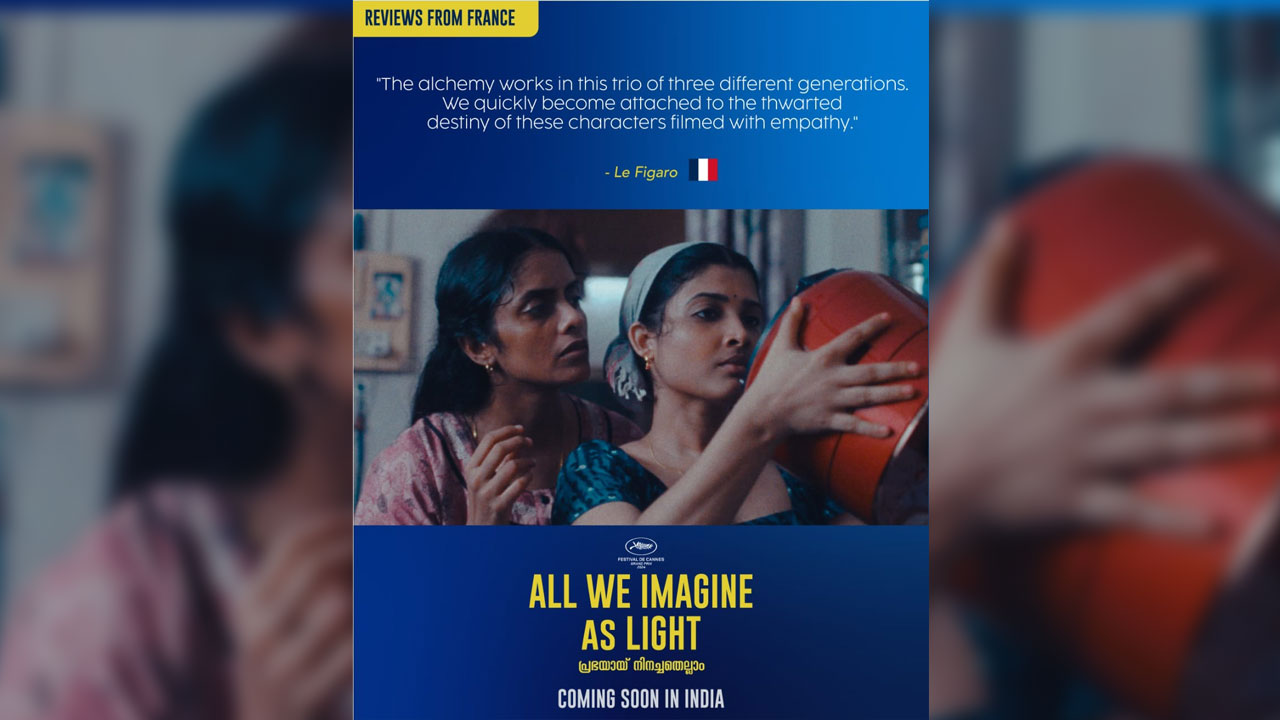‘All We Imagine As Light’ garners impressive reviews in France!
#PayalKapadia’s critically acclaimed film All We Imagine as Light has made an extraordinary debut in #French theatres, receiving rave reviews and being released across 185 theatres.
Distributed by Condor Distribution, the film was released on October 2 and has quickly gained traction with audiences and critics, making it one of the standout Indian films in France. The film’s success stems from its universal exploration of identity and resilience which have resonated deeply with French audiences, underscoring the global appeal of its storytelling.
Following its Grand Prix win at the Cannes Film Festival, All We Imagine as Light has been lauded for its moving portrayal of two nurses in Mumbai, establishing a new benchmark for Indian films overseas. Rana Daggubati’s Spirit Media, which is distributing the film in India, shared their delight “After winning at Cannes and earning critics’ love, All We Imagine as Light continues to win over audiences and cinema goers in France with its recent release. We are excited about the film’s journey ahead in India and looking forward to bringing it to screens in India soon”.
The film’s success signals a growing appetite for diverse, global narratives in French cinema, opening new doors for Indian filmmakers. “We’re humbled by the wide theatrical release in France and deeply grateful to everyone who has taken
the time to watch All We Imagine as Light.” said Zico Maitra, the co-producer from Chalk and Cheese. “After the warm response from audiences in France, we are excited to release the film across India and look forward to its reception here.”
Some of the reviews by French Publications:
The Figaro by OD:
The alchemy works in this trio of three different generations. We quickly become attached to the thwarted destiny of these characters filmed with empathy.
Les Inrockuptibles (5 Stars)
by Ludovic Béot:
A perfect loop that probes the capacity of beings to dry their tears, to heal their wounds, without forgetting or regretting for whom and for what their heart beats.
By Keerti Kadam


